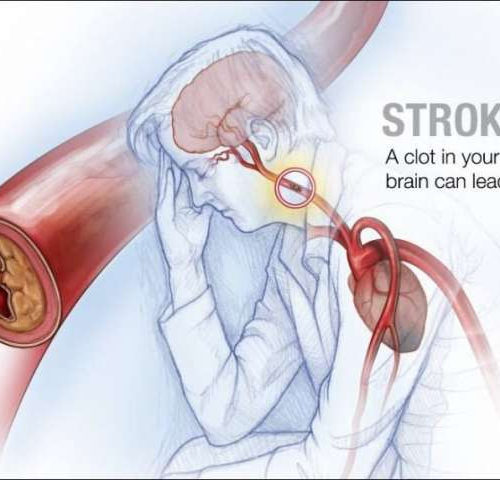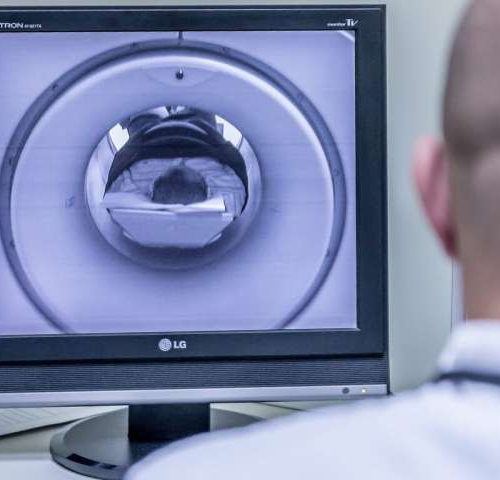PLOS More than half of people with acute COVID-19 infection continue to have persistent fatigue 10 weeks after their initial illness, according to a new study published November 9 in the open-access journal PLOS ONE by Liam Townsend of Trinity College Dublin, Ireland and colleagues. Fatigue is one of the most common initial presenting complaints of people...
Category: <span>Prognostic</span>
Gene signature predicts whether localized prostate cancer is likely to spread
COLUMBIA UNIVERSITY IRVING MEDICAL CENTER NEW YORK, NY (Nov. 10, 2020)–Researchers have identified a genetic signature in localized prostate cancer that can predict whether the cancer is likely to spread, or metastasize, early in the course of the disease and whether it will respond to anti-androgen therapy, a common treatment for advanced disease. The new...
Remotely delivered program improves blood pressure, cholesterol control in 5,000 patients
by Brigham and Women’s Hospital Despite being known risk factors for poor cardiovascular outcomes, blood pressure and low-density lipoprotein (LDL) cholesterol remain undertreated among a large proportion of patients. To address this gap, a team from Brigham and Women’s Hospital and Mass General Brigham Health System, led by Brigham cardiologist Benjamin Scirica, MD, MPH, developed a...
New study could help predict which individuals are more susceptible to cancer-causing agents
by University of Birmingham New insights into the mechanisms behind how cancer-causing agents in the environment activate genetic recombination in DNA could help to explain some of the effects of exposure as well as predicting which individuals may be more susceptible to developing the disease, a new UK study has suggested. Everyone is exposed to low...
Life after COVID hospitalization: Study shows major lasting effects on health, work & more
MICHIGAN MEDICINE – UNIVERSITY OF MICHIGAN IMAGE: A COVID-19 CARE TEAM AT MICHIGAN MEDICINE, THE UNIVERSITY OF MICHIGAN’S ACADEMIC MEDICAL CENTER, IN SPRING 2020 Surviving a case of COVID-19 that’s bad enough to land you in the hospital is hard enough. But life after the hospital stay – and especially after an intensive care stay...
Protein in blood may predict prognosis, recovery from stroke
by Lynda De Widt, Mayo Clinic Researchers at Mayo Clinic in Florida and collaborators have found that a biomarker in the blood may determine the extent of brain injury from different types of strokes and predict prognosis in these patients. Their findings are reported in Science Translational Medicine. The blood biomarker is a protein known as neurofilament light...
The lung microbiome may affect lung cancer pathogenesis and prognosis
AMERICAN ASSOCIATION FOR CANCER RESEARCH Bottom Line: Enrichment of the lungs with oral commensal microbes was associated with advanced stage disease, worse prognosis, and tumor progression in patients with lung cancer. Journal in Which the Study was Published: Cancer Discovery, a journal of the American Association for Cancer Research Author: Leopoldo Segal, MD, director of the Lung Microbiome...
Link between sleep apnea and increased risk of dementia
by Monash University A new study by Monash University has found that obstructive sleep apnea (OSA) has been linked to an increased risk of dementia. The study, published in the Journal of Alzheimer’s Disease, and led by Dr Melinda Jackson from the Turner Institute for Brain and Mental Health, found that severe OSA is linked to an...
Warfarin use significantly increases risk of knee and hip replacement in people with OA
AMERICAN COLLEGE OF RHEUMATOLOGY ATLANTA — New research presented at ACR Convergence, the American College of Rheumatology’s annual meeting, shows that use of warfarin, a vitamin K drug widely prescribed to prevent blood clots, is associated with a significantly greater risk of knee and hip replacements in patients with osteoarthritis (ABSTRACT #0934). Osteoarthritis (OA) is a...
Study finds 1 in 5 COVID-19 patients develop mental illness within 90 days
BY SARAH POLUS COVID-19 has been linked to a greater risk of developing mental health disorders, a new study from Britain’s Oxford University states. The report published in The Lancet peer-reviewed medical journal found that 20 percent of COVID-19 survivors, or 1 in 5, will receive a first-time mental health diagnosis within 90 days of infection. Among the...





